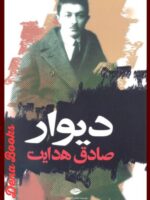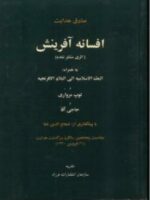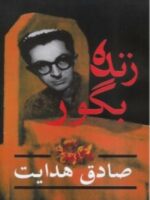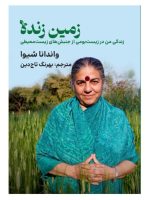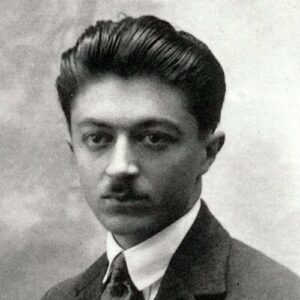
Sadegh Hedayat (Persian: صادق هدایت Persian pronunciation: [ˈsɑːdɛq ɛ hɛdɑːˈjæt] About this soundlisten (help·info); February 17, 1903 in Tehran – April 9, 1951 in Paris) was an Iranian writer, translator and intellectual. Best known for his novel The Blind Owl, he was one of the earliest Iranian writers to adopt literary modernism in their career.
Hedayat was born to a northern Iranian aristocratic family in Tehran (his great-grandfather Reza-Qoli Khan Hedayat Tabarestani was himself a well respected writer and worked in the government, as did other relatives) and was educated at Collège Saint-Louis (French catholic school) and Dar ol-Fonoon (1914–1916). In 1925, he was among a select few students who traveled to Europe to continue their studies. There, he initially went on to study engineering in Belgium, which he abandoned after a year to study architecture in France. There he gave up architecture in turn to pursue dentistry. In this period he became acquainted with Thérèse, a Parisian with whom he had a love affair[citation needed]. In 1927 Hedayat attempted suicide by throwing himself into the Marne, but was rescued by a fishing boat. After four years in France, he finally surrendered his scholarship and returned home in the summer of 1930 without receiving a degree. In Iran he held various jobs for short periods.
Hedayat subsequently devoted his whole life to studying Western literature and to learning and investigating Iranian history and folklore. The works of Rainer Maria Rilke, Edgar Allan Poe, Franz Kafka, Anton Chekhov and Guy de Maupassant intrigued him the most. During his short literary life span, Hedayat published a substantial number of short stories and novelettes, two historical dramas, a play, a travelogue, and a collection of satirical parodies and sketches. His writings also include numerous literary criticisms, studies in Persian folklore, and many translations from Middle Persian and French. He is credited with having brought Persian language and literature into the mainstream of international contemporary writing. There is no doubt that Hedayat was the most modern of all modern writers in Iran. Yet, for Hedayat, modernity was not just a question of scientific rationality or a pure imitation of European values.[citation needed]
In his later years, feeling the socio-political problems of the time, Hedayat started attacking the two major causes of Iran’s decimation, the monarchy and the clergy, and through his stories he tried to impute the deafness and blindness of the nation to the abuses of these two major powers. He felt alienated by everyone around him, especially by his peers, and his last published work, The Message of Kafka, bespeaks melancholy, desperation, and the sense of doom experienced by those subjected to discrimination and repression.[citation needed]
Hedayat’s corpse in Paris, following his 9 April 1951 suicide
Hedayat traveled and stayed in India from 1936 until late 1937 (the mansion he stayed in during his visit to Bombay was identified in 2014). Hedayet spent time in Bombay learning the Pahlavi (Middle Persian) language from the Parsi Zoroastrian community of India. He was taught by Bahramgore Tahmuras Anklesaria (also spelled as Behramgore Tehmurasp Anklesaria), a renowned scholar and philologist.[1][2] Nadeem Akhtar’s Hedayat in India[3] provides details of Hedayat’s sojourn in India. In Bombay Hedayat completed and published his most enduring work, The Blind Owl, which he had started writing, in Paris, as early as 1930. The book was praised by Henry Miller, André Breton and others, and Kamran Sharareh has called it “one of the most important literary works in the Persian language”.
Death and legacy
In 1951, overwhelmed by despair, Hedayat left Tehrān and traveled to Paris, where he rented an apartment. A few days before his death, Hedayat tore up all of his unpublished work. On April 9, 1951, he plugged all the doors and windows of his rented apartment with cotton, then turned on the gas valve, committing suicide by carbon monoxide poisoning. Two days later, his body was found by police, with a note left behind for his friends and companions that read, “I left and broke your heart. That is all.
(From: Wikipedia)












